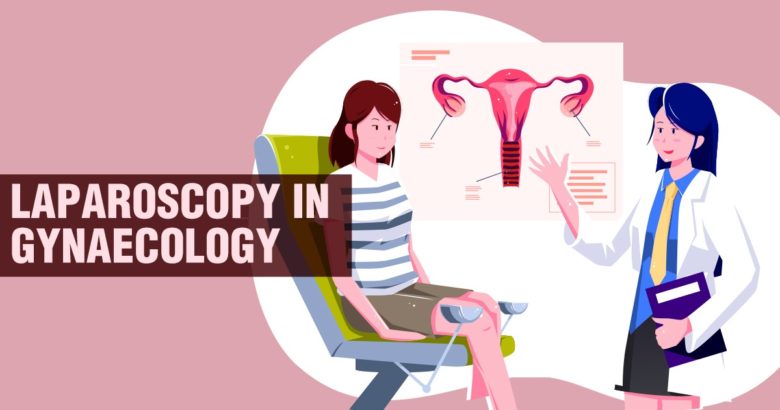Laparoscopy in Gynaecology
What is Laparoscopy?
Laparoscopy is a procedure where we insert a thin, slender telescope into the abdomen of the patient to view the internal organs.
Laparoscopy is done both for the diagnosis and for the treatment as well.
Diagnostic Laparoscopy is done in a condition where-
- A patient has unexplained pain in the pelvis; this is termed as unexplained pelvic pain.
- In those cases where a couple is trying to conceive, and all the reports are normal which is called unexplained infertility
Many conditions can be treated with the help of Laparoscopy –
- If a lady has an ovarian cyst; it can be removed
- In cases are fibroid uterus the fibroid can also be taken out with the help of Laparoscopy.
- Endometriosis is where the ovary may be having a cyst filled with blood or chocolate colour fluid, or the organs may be adhered to each other , Laparoscopy is useful in such cases also.
- To assess whether the fallopian tube is open or block in case of infertility
- For tubal ligation in cases of contraception.
- Removal of uterus that is total laparoscopic hysterectomy is also one of the conditions which is useful for the patient as the scars are very small and the recovery time from Laparoscopy is shorter as compared to open surgery.
Preparation for Laparoscopy.
The patient is advised basic blood investigation and given a proper bowel before the laparoscopic procedure. The patient is advised for a midnight fasting and come to the hospital empty stomach.
Full unconscious anaesthesia is given. The abdomen is filled with Carbon dioxide gas with the help of a thin needle, this prevents the injury to the internal organ. Then a 10mm incision is given the umbilical area to insert the laparoscope to visualise the organs. Once the condition is identified, then other small incisions are given depending on the case.
After the procedure patient is kept in the recovery room for some time.
Advantages of Laparoscopic surgery–
- Small incisions are given as compared to the big incision given in open surgery.
- Blood loss is less.
- Time to recover is less.
Complications of laparoscopic surgery–
- Like other surgery there can be damage to the organs like bladder, bowel or a vessel.
- There can be problem-related to anaesthesia.
- There can be anaphylactic reaction also.
- Carbon dioxide gas given can enter the blood stream, and this can be dangerous.
For more information contact Dr Roshi Satija 9958722133 www.drroshisatija.com
#laparocopicsurgery #laparoscopysurgerycost #gynaecologylaparoscopysurgery #indicationforlaparoscopysurgery #laparoscopyforinfertility

